New Camry Hybrid provides luxury in a larger model with electric advantages
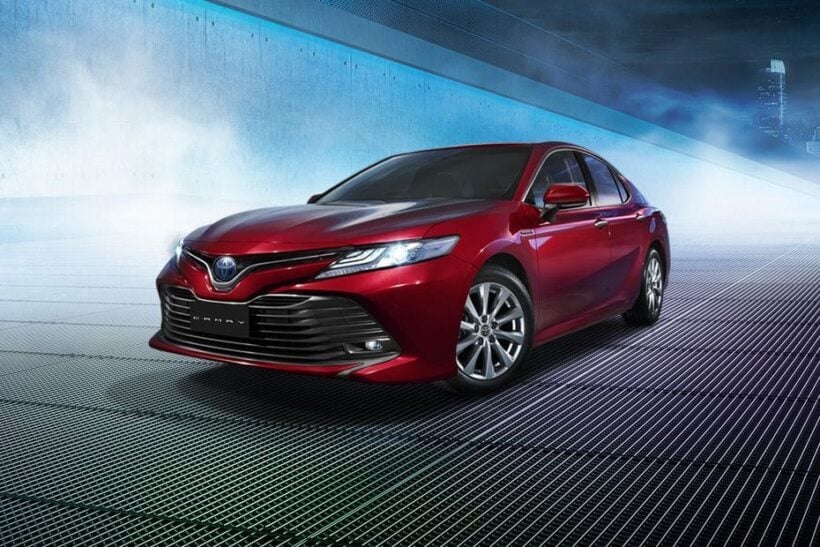
by Kingsley Wijayasinha – The Nation Weekend
The interest in electric cars is hotting up in Thailand but Thai manufacturers, so far, have been reluctant to take the FULL electric plunge.
In the meantime Toyota is hoping their new Camry Hybrid will draw a good number of customers thanks to its packaging overhaul. The hybrid is battery operated with a back-up petrol engine to boost performance and help recharge the batteries.
The 2.5 HV Premium hybrid, priced at 1.799 million baht, is the top Camry model in Thailand and brings to mind Lexus, Toyota’s luxury brand. And then there is also choice between the traditional petrol-engined 2.5-litre (1.539 million baht) and 2.0-litre (1.445 million baht) powerhouses.
The 2018 Camry boasts large body dimensions – 4,885 millimetres in length and 1,844mm in width. The wheelbase is 2,825mm (50mm longer than the previous model) and the car runs on 215/55 tires on 17-inch alloy wheels.
While the exterior design may appear provoking, with its unnaturally huge and aggressive front grill and muscular dimensions, the interior is furnished with high-quality genuine leather upholstery along with artificial leather, powered front seats with memory for the driver’s seat and steering positions.
The larger dimensions result in a larger cabin both front and rear, while the seats are comfortable too. The cabin is the total opposite of the previous model, which wasn’t so flashy. And that’s something you would expect from Toyota. But with the new Camry, the thinking has changed much – it just reminds me of the Lexus ES300 (which actually shares the same TNGA platform).
While the Lexus gets a Mark Levinson sound system, the Camry gets a JBL DVD with navigation system, eight-inch touch screen and nine speakers (including subwoofer), as well as T-Connect Telematics that connect easily. There is one USB port in front and two at the rear.
The driver gets a head-up display on the windshield and there’s a full package of smart safety systems including blind-spot monitor and rear cross-traffic alert, auto high beam and lane departure alert. There’s also a dynamic radar cruise control that slows down or speeds up depending on the vehicle in front.
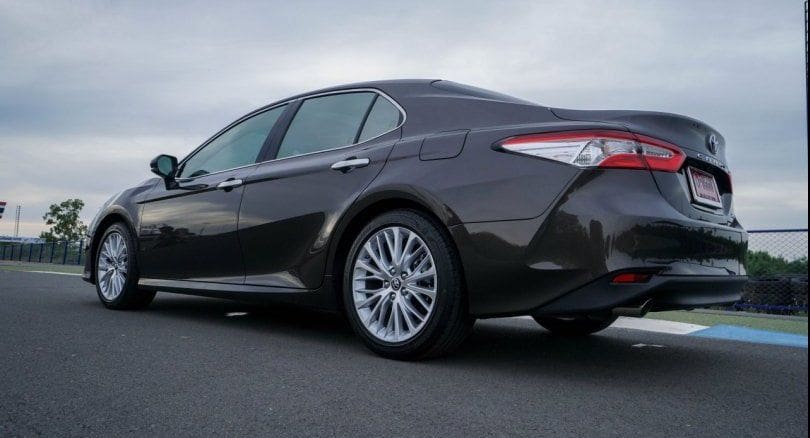
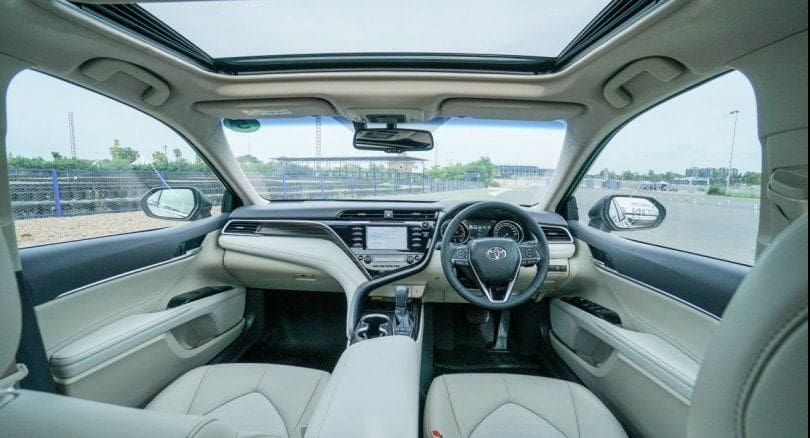
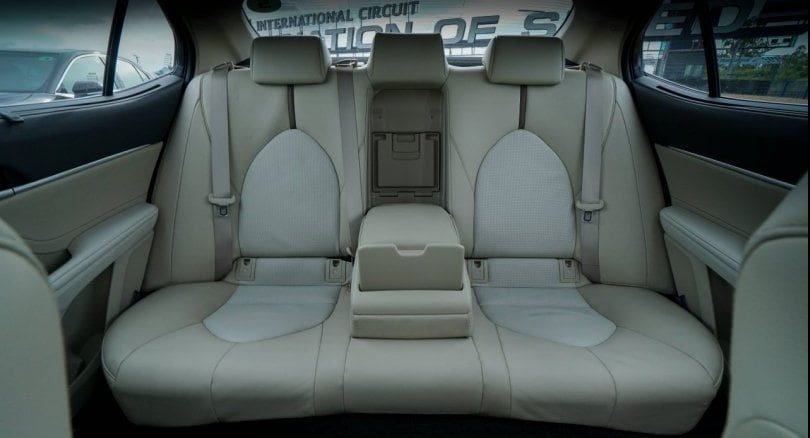
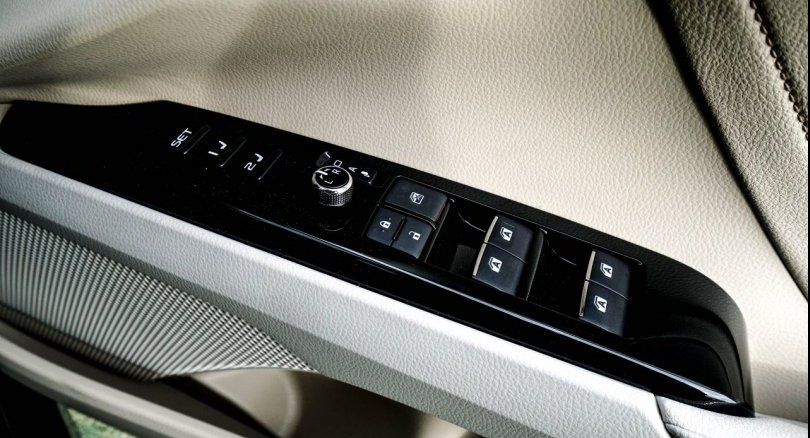
It’s a pity that Toyota hasn’t decided to offer a plug-in version of its hybrid products. The Camry gets into pure EV mode occasionally, for example after pressing the start button, but the nickel metal hydride battery’s capacity isn’t large enough to cover long distances.
Nevertheless, the fuel economy is pretty good since it’s a hybrid – Toyota claims it can achieve an average of 25km/litre in combined city and highway driving mode.
The efficient 2.5 gasoline engine in the Camry Hybrid pumps out 178 horsepower and 221Nm, while the electric motor is capable of producing another 88 horsepower and 202Nm (though the combined engine and motor output is limited to 211 horsepower). When that happens, the Camry was able to raise eyebrows with its powerful straight-line acceleration, and it gets even better when the sport button is pushed. The stepless E-CVT (Electronic Continuously Variable Transmission) is silky smooth and gives the Camry Hybrid a cultured performance.
Despite the powerful acceleration, the hybrid is 100 kilograms heavier than the 2.5-litre version, and the driver will easily feel the added weight during cornering. Make a normal U-turn and you can feel it’s a pretty heavy car.
On the other hand, the Camry 2.5G (which I also drove after the hybrid) has a better weight balance and cuts through corners easily. But even in sport mode, the power and response is incomparable to the hybrid when both the engine and motor is going full rev.
The steering isn’t too sharp, but offers decent precision and weight. The brakes, meanwhile, have and improved feel although it still takes some getting used to due to the energy regenerative system that turns deceleration forces into electric energy.
After a few days of driving both the Toyota Camry 2.5HV Hybrid and the 2.5G, it was the hybrid that offered a better and more complete package even with the higher pricing.
Toyota Camry 2.5 HV Premium specs
Engine: 4-cylinder DOHC 16-valve
Displacement: 2,487cc
Bore and stroke: 87x103mm
Compression ratio: 14.0:1
Max power: 178ps/5,700rpm
Max torque: 221Nm/3,600-5,200rpm
Motor Generator: Permanent Magnet Synchronous Motor
Hybrid Main Battery: Nickel Metal Hydride
Capacity: 6.5 A/hr
Max power: 88ps
Max torque: 202Nm
Combined engine and motor max power: 211ps
Transmission: E-CVT (Electronically-controlled Continuously Variable Transmission)
Final drive ratio: 3.193
Average fuel economy: 25km/litre
Average CO2: 92g/km
Suspension (f/r): McPherson strut/double wishbone
Steering: powered rack-and-pinion
Turning circle: n/a
Brakes (f/r): vented disc/disc
Dimensions (mm)
Length: 4,885
Width: 1,840
Height: 1,445
Wheelbase: 2,825
Track (f/r): n/a
Weight: 1,650kg
Wheels: 17-inch alloys
Tyres: 215/55 R17
Fuel tank capacity: 50 litres
Price: Bt1.799 million
Distributor: Toyota Motor Thailand Co Ltd
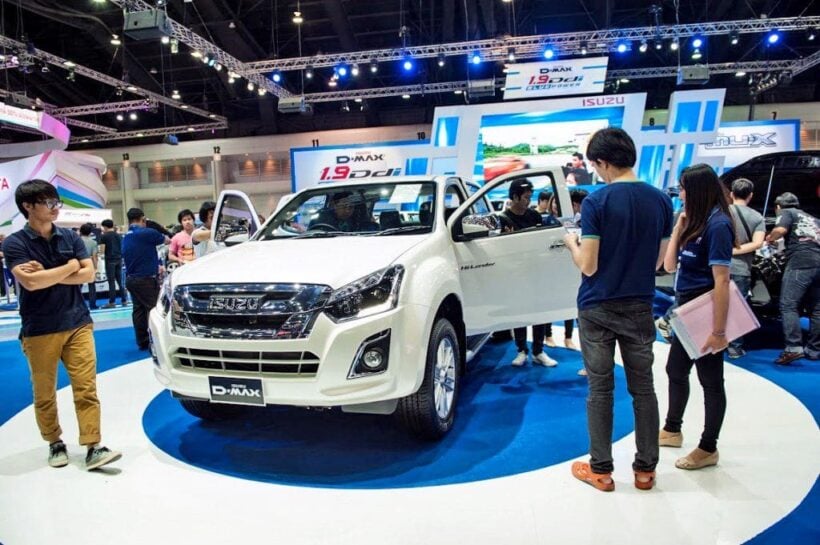
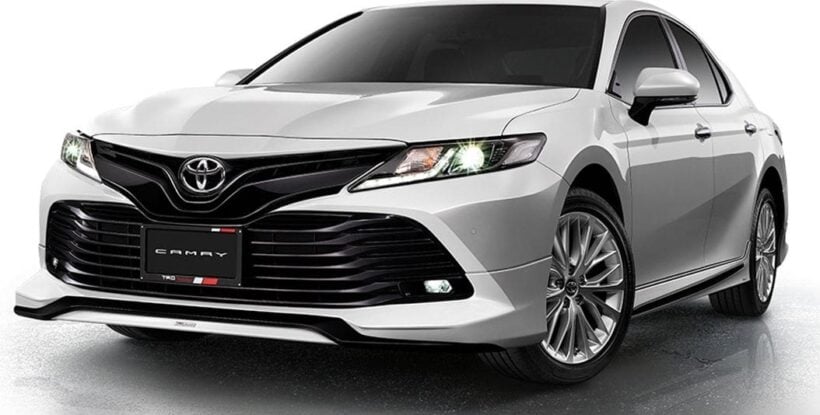
Latest Thailand News
Follow The Thaiger on Google News:


























